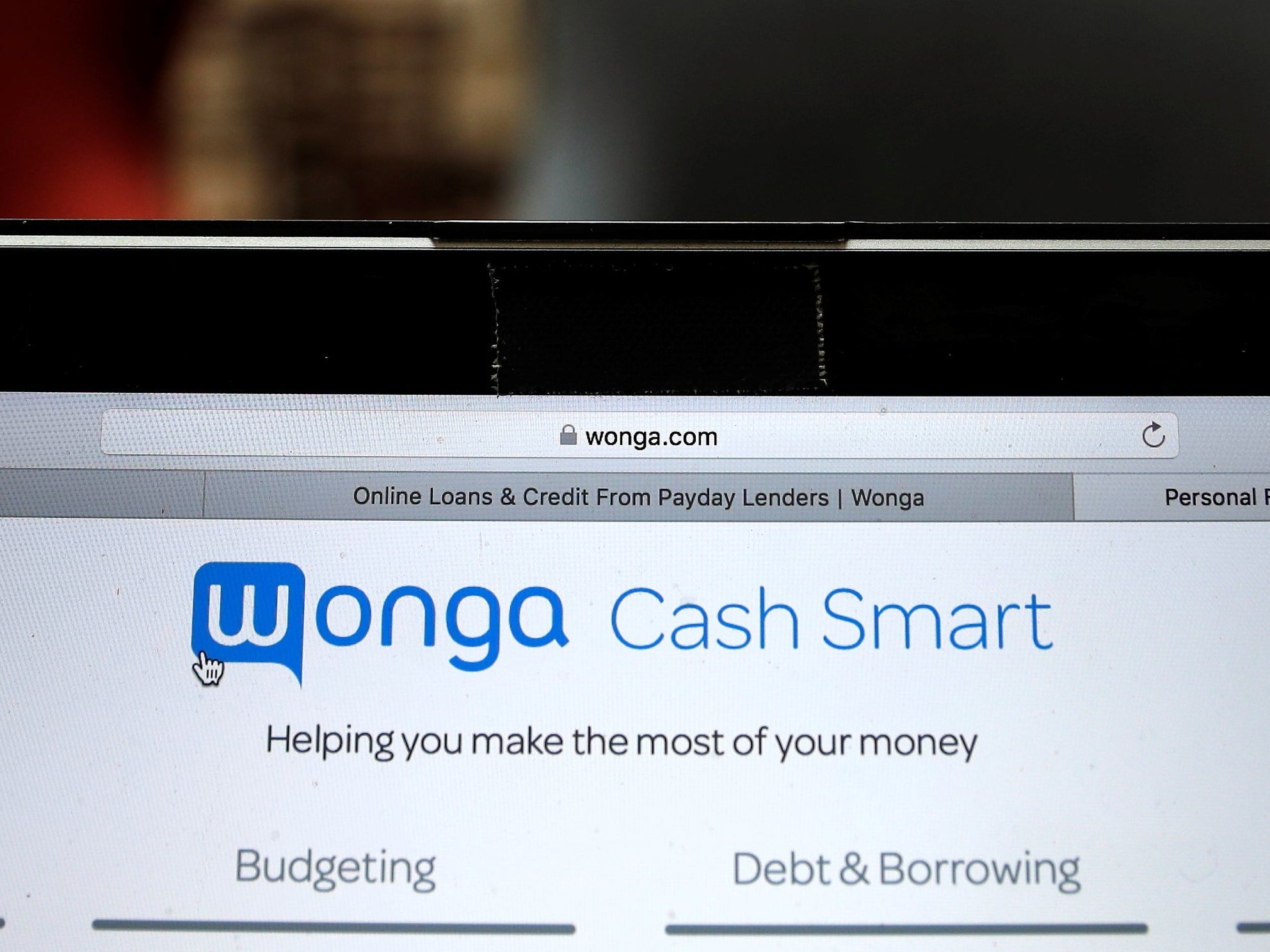Wonga customers to get just 4.3% of compensation for missold payday loans
Average borrower to receive just £51 of £1,200 redress

Thousands of borrowers who were missold loans they couldn’t afford by the defunct payday lender Wonga will get back just 4.3 per cent of the compensation they are owed.
Administrator Grant Thornton revealed on Thursday that it had recovered just £24m of assets to cover £535m of claims from Wonga’s creditors, including almost 400,000 former customers.
It means the average claimant, owed £1,200, will get just £51.
Wonga collapsed in 2018 under a deluge of compensation claims for misselling. Administrators subsequently contacted hundreds of thousands more customers telling them they may also be entitled to redress.
Complainants were told last year that they would receive only a fraction of what they were due but some expressed anger at the payment amounts in online forums on Thursday.
One poster on the Debt Camel advice website said their payment was an “absolute joke”, adding that they had paid more in interest on one of their dozens of loans than they would receive in redress. Another wrote: “My claim was £986. I’m getting about £43. It’s an absolute disgrace.”
However, some customers were more positive about the payouts. Sam Windle, who took out loans with Wonga several years ago, said that although 4.3 per cent was less than he had hoped for, it was better than nothing.
His redress amount was initially £5,200 before being reduced to £2,700, of which he received just £121. However, like many other Wonga customers, he was not aware that he was due compensation until the administrators contacted him.
Mr Windle, who has now cleared all of his debts, was at one point paying off around £300 interest to Wonga on each of seven payday loans. “It was a vicious cycle really. I can honestly say the day I paid it all off was the happiest day of my life.”
He added: “The only frustrating about the compensation is that it was due to be paid in January bit that’s been put back to some point in the next four weeks. The communication from the administrators has been pretty poor really.”
Sara Williams, a personal finance expert who runs the Debt Camel website, said: “People were told last year by the Wonga administrators what their compensation amount had been calculated at and they were warned their payout would be ‘significantly less’.
“Many people thought that meant they might get a half, a third or even 10 per cent.
“When they were told yesterday that they would only get 4.3 per cent, people were very shocked. On the average compensation of about £1000, they will get only £43.
“Some people, remembering the stress the Wonga loans had caused them, have described this as an insult and not proper compensation at all.”
Wonga had faced a barrage of criticism over the high interest it charged on loans and was accused of targeting those who were most vulnerable.
In 2014, the firm wrote off £220m worth of debt belonging to 330,000 customers after admitting making loans to people who could not afford to repay them.
Administrators had received 389,621 eligible claims from those said to have been sold unaffordable loans as of August 2019, according to documents filed with Companies House.
Prior to its collapse in August 2018, Wonga blamed its difficulties on a “significant” increase in people making claims in relation to historic loans. Fellow payday lender QuickQuid was put into administration last October after experiencing similar difficulties.
The Money Advice Service website has a guide on alternatives to payday loans, and you can also contact a free helpline on 0800 138 7777
Join our commenting forum
Join thought-provoking conversations, follow other Independent readers and see their replies
Comments
Bookmark popover
Removed from bookmarks